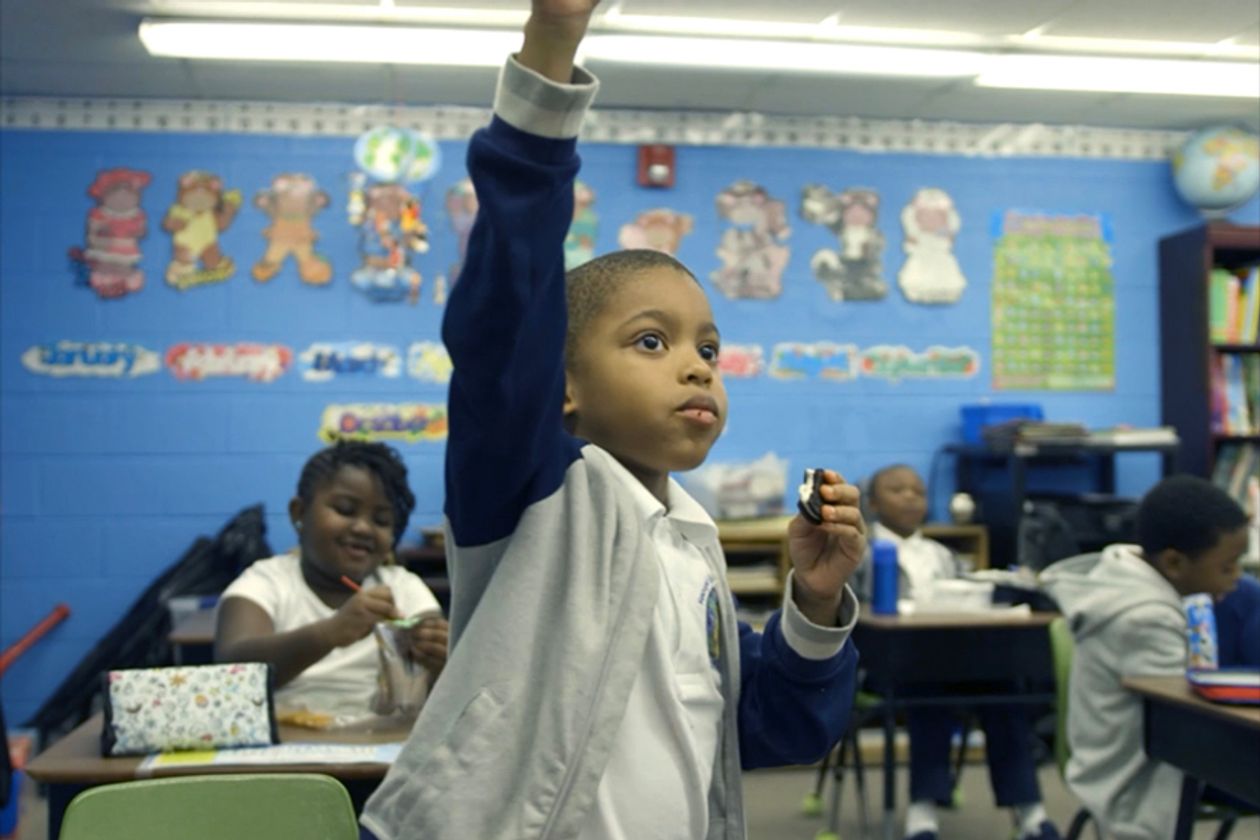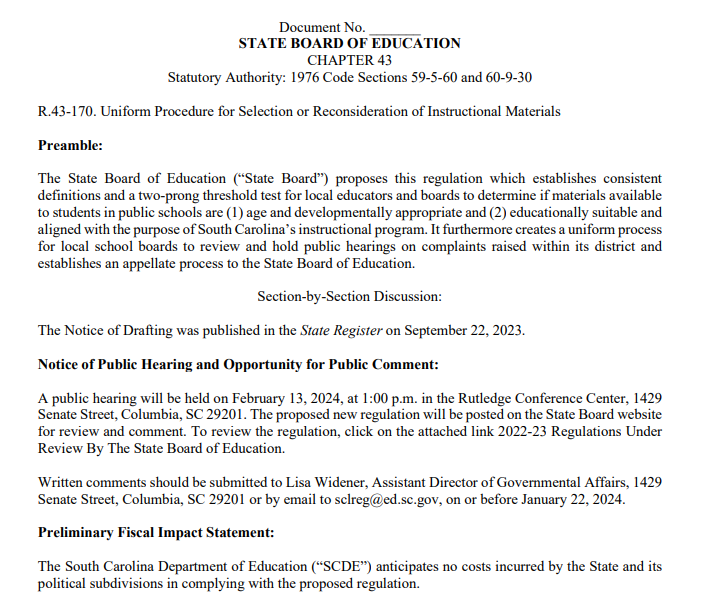Give “Read to Succeed” A Chance

Dr. Oran Smith
This op-ed originally appeared in The Greenville News on Saturday, July 22, 2017
The article “Read to Succeed retention policy ‘a disaster’” published in The Greenville News on July 7 featured a number of criticisms of the not yet fully implemented Read to Succeed (hereafter RtS) program. RtS is the new South Carolina reading initiative based on success in Florida that provides intensive training for teachers (such as reading coaches), early identification of students having reading difficulties, and evidence-based extensive interventions for students so that they are on grade level by the end of third grade. RtS also includes a provision that ends the practice of promoting to 4th grade students without basic reading skills.
Here are a few facts the article may have missed:
First, being unable to read is the worst kind of “gift” that keeps on giving. There is a host of data to support this claim, but here are just three statistics. Students who cannot read by the end of the third grade are four times more likely to drop out of high school, nearly 85 percent of teenagers in the juvenile justice system cannot read to learn, and seven out of ten adult prisoners cannot read above a fourth grade level.
Second, South Carolina has a reading crisis. Results from South Carolina’s statewide assessment, SC READY, show that only 44% of third graders met or exceeded standards in reading in 2016. Only 14% of South Carolina high school graduates met “college ready” benchmarks for English, Reading, Math and Science according to ACT (2016). Make no mistake, these problems begin in grades K-3.
Third, Read to Succeed was indeed a success in Florida. Since the year before the retention policy came into effect, the percentage of Florida students scoring low enough to qualify for retention has fallen by 40 percent. More Florida children, in short, are learning how to read during the developmentally critical period. The students at the bottom proved the biggest winners from Florida’s no-nonsense reforms.
Fourth, South Carolina teachers are on board with Read to Succeed. The support for RtS from teachers on the ground is overwhelming. 86% of teachers believe RtS has increased learning time for struggling readers, 85% of teachers believe that RtS was at least partially responsible for improving K-3 reading outcomes, 81% of teachers believe RtS increased efforts to engage parents and guardians of struggling readers, and 90% of teachers agree they receive adequate support to help them analyze student assessment data and make instructional decisions. This is what teachers are actually seeing in the classroom.
Fifth, Read to Succeed is in its initial phases. The legislation championed by Senator Harvey Peeler (R-Gaffney) and Superintendent Molly Spearman is being implemented over several years. It is not intellectually honest to criticize the failure of “holding students back” when no retention under RtS can take place until this (2017-2018) academic year.
Sixth, the goal is not retention in third Grade, the goal is promotion to fourth Grade. Under RtS, students are provided with a host of interventions to ensure grade level reading by the end of third grade, like opportunities to attend reading camps in the summer. RtS specifies that retained students receive more intensive interventions, such as reduced teacher-student ratios; more frequent student progress monitoring, tutoring or mentoring, and more dedicated time for reading intervention through an extended school day, week or year. After the enactment of an RtS-like initiative, 14% of Florida 3rd graders were retained the first year of the policy. This percentage of retained students proceeded to fall through the decade as 3rd grade reading scores improved, reaching 7 percent today.
Seventh, South Carolina is “all in” on Read to Succeed. In 2016, 8,609 students (K-5) were enrolled in Summer Reading Camps and over 50,000 educators have undergone RtS training.
Eighth, being continually socially promoted is worse for self-esteem in the long run than being retained. We don’t do children any favors by sending them on to fourth, fifth, sixth or twelfth grade unable to read. The loving, respectful strategy is to make every effort to insure each child reads on grade level by the end of third grade. When retention is necessary, we give the child a great gift—a year to catch up with his or her peers rather than being consigned to a lifetime of embarrassment and frustration.
Read to Succeed is in its infancy in South Carolina, but if we work together to support the comprehensive strategies it entails, a wide door of opportunity will swing open for students who would have otherwise been left behind academically and economically. Education fads come and go, but Read to Succeed has the potential to be a turning point for our state’s kids.
Oran P. Smith, PhD is Senior Fellow at Palmetto Promise Institute based in Columbia and Greenville. PPI provided testimony supportive of Read to Succeed to the SC General Assembly.




